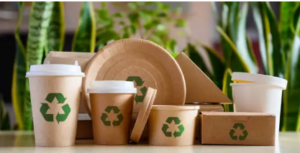In an era where environmental sustainability is at the forefront of global consciousness, plant-based packaging has emerged as a promising solution to the mounting problem of plastic waste. Traditional plastic packaging, derived from fossil fuels, has long been criticised for its adverse environmental impacts, including pollution, non-biodegradability, and contribution to greenhouse gas emissions. Plant-based packaging like Pharmapac plant-based packaging, on the other hand, offers a renewable and eco-friendly alternative that can remarkably reduce waste and its associated harms.
Understanding Plant-Based Packaging
 Plant-based packaging is crafted from various renewable biological resources, such as corn, sugarcane, bamboo, and even algae. These materials are processed into biopolymers, which can then be moulded into different packaging forms, from bottles and bags to containers and wraps. In contrast to conventional plastic, which can take centuries to decompose, plant-based packaging is designed to be biodegradable or compostable, breaking down into natural elements in a significantly shorter period.
Plant-based packaging is crafted from various renewable biological resources, such as corn, sugarcane, bamboo, and even algae. These materials are processed into biopolymers, which can then be moulded into different packaging forms, from bottles and bags to containers and wraps. In contrast to conventional plastic, which can take centuries to decompose, plant-based packaging is designed to be biodegradable or compostable, breaking down into natural elements in a significantly shorter period.
Environmental Benefits of Plant-Based Packaging
- Reduction in Plastic Waste: One of the most significant advantages of plant-based packaging is its potential to reduce plastic waste. Traditional plastic packaging often ends up in landfills or the ocean, causing extensive environmental damage. Plant-based packaging, however, decomposes naturally, reducing the volume of waste that accumulates in the environment.
- Lower Carbon Footprint: The production of plant-based packaging generally leads to lower carbon emissions compared to petroleum-based plastics. During their growth, plants absorb carbon dioxide, offsetting some of the emissions generated during manufacturing. Additionally, many plant-based packaging solutions require less energy to produce, further reducing their carbon footprint.
- Resource Renewability: Unlike fossil fuels, the raw materials used for plant-based packaging are renewable. Crops like corn and sugarcane can be replanted and harvested annually, ensuring a continuous supply. This renewable nature of plant-based materials helps in conserving non-renewable resources and promotes a sustainable cycle of production and consumption.
- Compostability and Biodegradability: Pharmapac plant-based packaging often comes with the added benefit of being compostable or biodegradable. It means that under the right conditions, such as in industrial composting facilities, the packaging can break down into nutrient-rich compost, which can be signficiantly used to enrich soils. This decomposition process not only reduces waste but also contributes to soil health and agricultural productivity.
Economic and Social Impacts
The shift towards plant-based packaging is not only environmentally beneficial but also carries significant economic and social impacts. As consumer awareness and demand for sustainable products increase, companies are investing more in plant-based packaging solutions. This transition is driving innovation and creating new markets and job opportunities within the green economy.
- Market Growth and Innovation: The market for plant-based packaging is growing quickly, fueled by rising consumer demand and regulatory efforts to curb plastic waste. This expansion is spurring innovation, with companies developing new materials and production methods that are both cost-effective and environmentally friendly. Advances in biotechnology and materials science are continuously enhancing the performance and affordability of plant-based packaging, making it a viable option for a broader array of applications.
- Job Creation and Economic Opportunities: The plant-based packaging industry is generating new economic opportunities, particularly in the agricultural and manufacturing sectors. Farmers benefit from the increased demand for crops used in bioplastics production while manufacturing facilities require skilled labor to produce and process these materials. This job creation can contribute to economic development, especially in rural areas where agriculture is a primary industry.
- Corporate Responsibility and Brand Image: Companies that adopt plant-based packaging demonstrate a commitment to environmental sustainability, which can remarkably enhance their brand image and customer loyalty. Consumers are increasingly making purchasing decisions significantly based on a company’s environmental practices, and businesses that prioritise sustainability can remarkably gain a competitive edge in the marketplace.
Conclusion
Plant-based packaging like Pharmapac plant-based packaging represents a significant step forward in the quest to effectively reduce waste and mitigate the environmental impacts of plastic. By harnessing renewable resources and promoting biodegradability, plant-based packaging offers a sustainable alternative that can help address the global plastic waste crisis. While challenges remain, continued innovation, investment in infrastructure, and a commitment to sustainable practices can pave the way for a future where packaging no longer contributes to environmental degradation. Reducing waste, one package at a time, plant-based packaging is significantly poised to make a lasting impact on the planet and the way we consume goods.